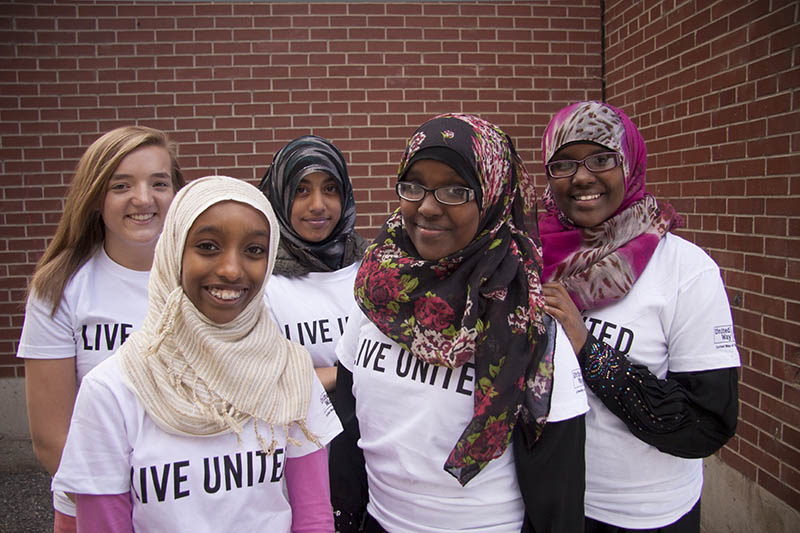
Granite Park Jr. Community School Coordinator
Students, faculty, and staff agree that the diversity among the student population at Granite Park Jr. High makes the school a special and unique place to work and learn. Most Granite Park Jr. students live in South Salt Lake and ninety-five percent of the student body qualifies for free or reduced-price lunch, which means they live at or near the poverty level. The majority of students are English Language Learners. Thirty-six languages are spoken at Granite Park Jr. High (GPJH), and the neighborhoods that GPJH draw from host a variety of refugee populations. Though the diversity of GPJH is one of its strongest characteristics, it also presents many unique challenges for faculty and staff who are committed to the success of their students.
Early last year, faculty received unsettling news in regards to the upcoming CRT (Criterion Reference Test) tests in May. The 2013 CRT scores meant something different for Granite Park Jr. High this year than in past years. CRT scores have always been an important assessment tool for schools throughout the state to understand how students are performing on grade-level curriculum. However, new CRT scores would determine if GPJH would become a ‘priority school’ (a designation given to schools performing in the bottom 15% compared to other schools in the state).
Understanding the complex social, linguistic, and emotional conditions of the student population and their families, an effort began to bring together community partners and resources to rally around the kids and families. Many of these partners in South Salt Lake participate in one of UWSL’s Promise Partnerships and were already organized around student and family success. The Promise Refugee Youth partnership is one of those groups. Promise Refugee Youth consists of the Asian Association of Utah, Catholic Community Services, International Rescue Committee, Horizonte, Granite School District – Educational Equity Department, 2M Strategic Consulting, and UWSL. This partnership quickly organized staff and volunteers in support of the Grizzly Academy afterschool program and the Saturday School program, designed specifically to help students preforming below average in core subjects.
The students also began to understand that their individual performance on these tests not only affected their future learning, but could potentially effect the faculty and staff they’d come to respect and appreciate. GPJH was their community school, and students began to understand the collective need to succeed on this crucial test and started taking advantage of community school resources.
After six weeks of Saturday School, intentional afterschool interventions, assemblies lead by a band made up of faculty and staff, videos, social media, hard work of faculty, and encouragement from the community, the results of the CRT scores were incredible. Results show the following improvements (from 2012 to 2013).
Language Arts
7th – 57% to 68%
8th – 67% to 70%
9th – 66% to 70%
*Data Source: USOE PSD Gateway, 2013 (CRT) Report
Math
7th – 28% – 56%
8th – 20% to 44%
Increased scores in the ELL population also showed large improvement.
*Data Source: Granite School District Database, data pulled by Dongfong Yang on January 15, 2014.
GPJH has proven that when communities, organizations, and agencies set aside their individual missions and rally around a common goal, every student can have the support and resources they need to succeed in school and in life, and beat the odds.
Thank you to the Promise Refugee Youth partnership, faculty, staff, the City of South Salt Lake, Destination Graduation partners, and especially – the students of GPJH for demonstrating that collectively, we can make an impact!

